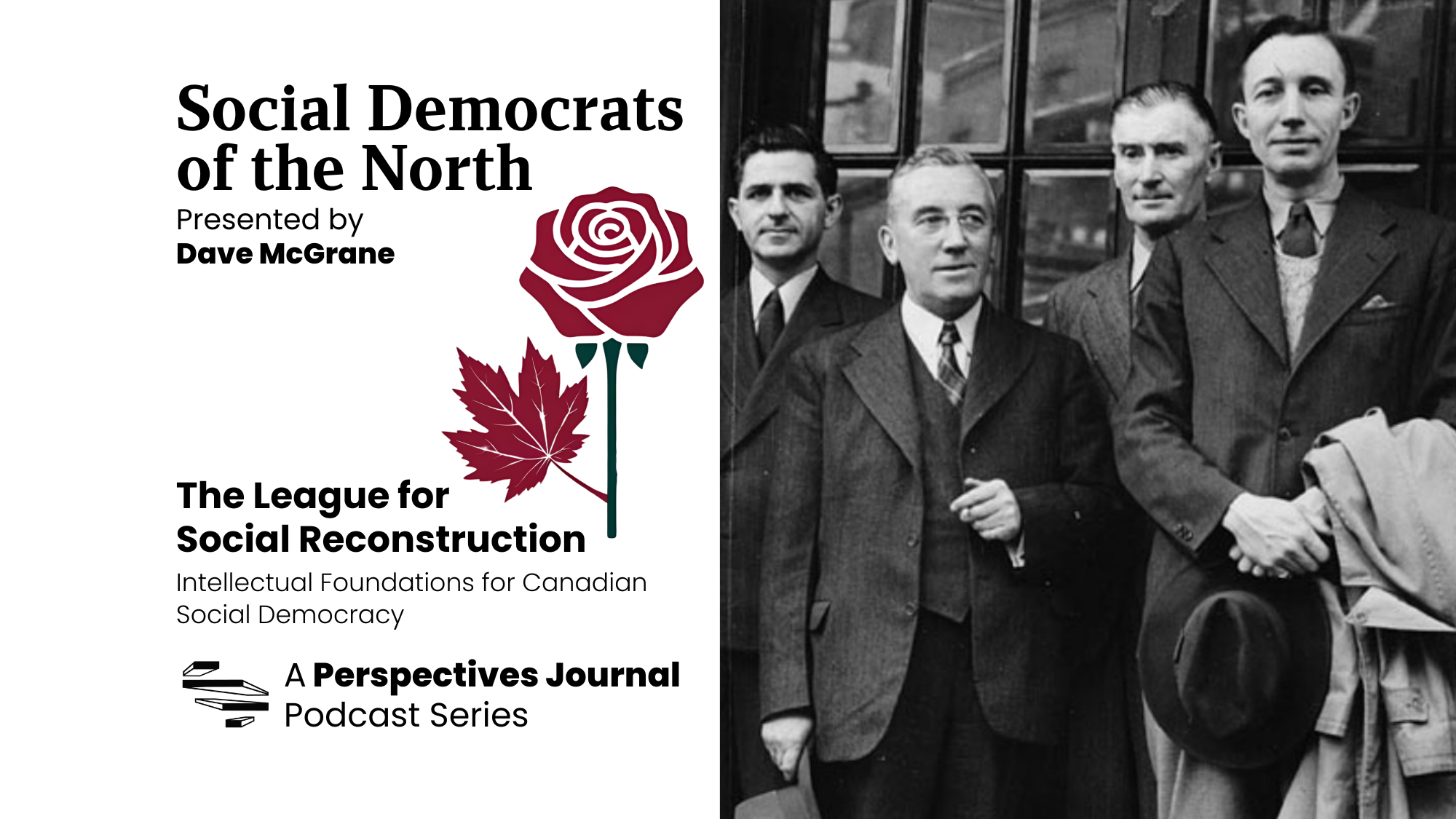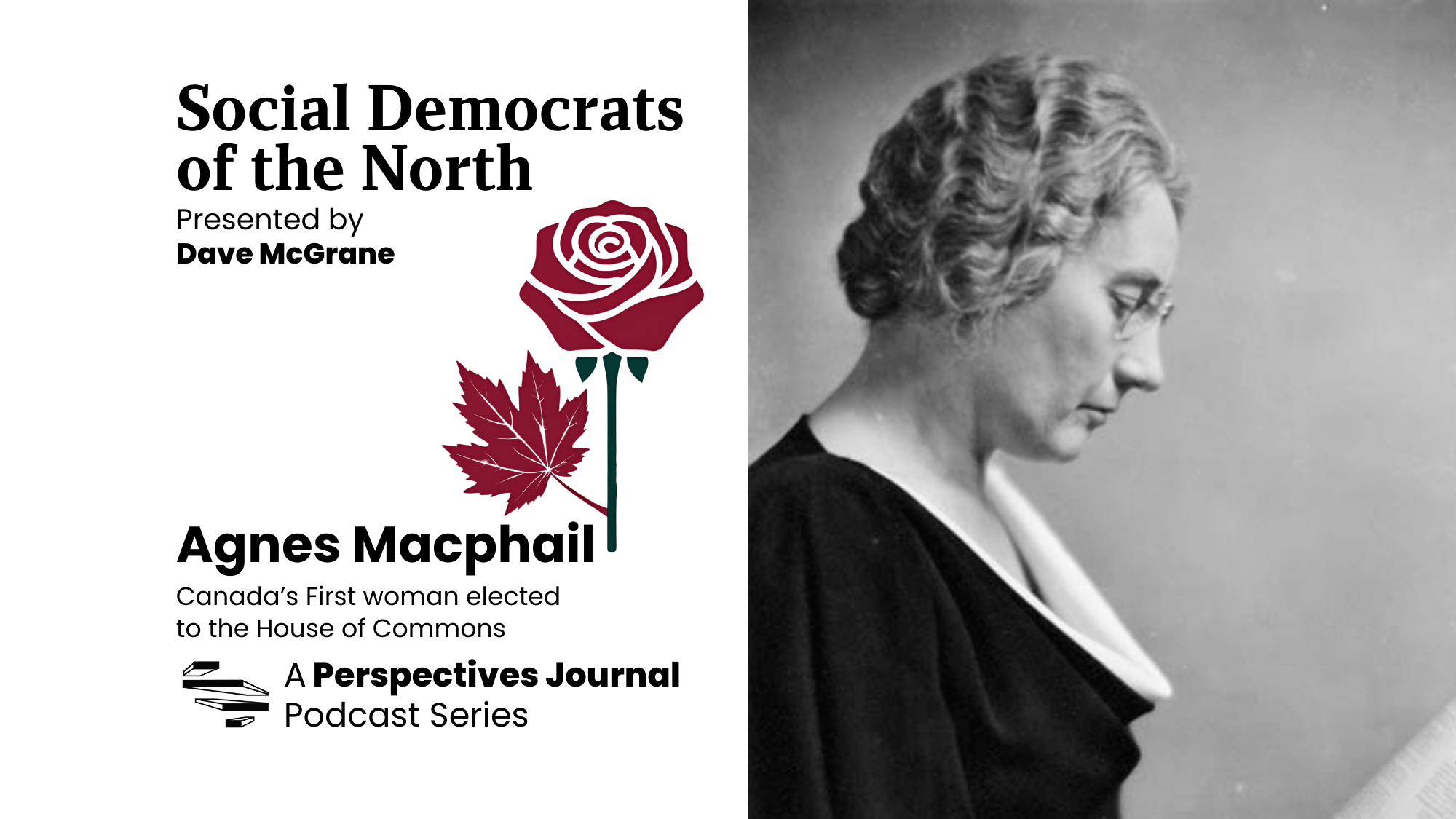Throughout his many decades in public life, few issues occupied Ed Broadbent as persistently as the problem of corporate power. By the end of the 1960s — as the likes of public pensions, employment insurance, Medicare, and other programs protected Canadians from illness and insecurity — the benefits of a developed welfare state were readily apparent. For Broadbent, however, the work of Canada’s socialists was far from finished. Thanks in no small part to the New Democratic Party, and to the Co-operative Commonwealth Federation before it, social legislation had been transformed. Yet despite these gains, large corporations — guided first and foremost by profit motive — continued to exercise tremendous unchecked power over the whole of Canadian society.
Broadbent argued that confronting this challenge, in his pitch to delegates at the NDP leadership convention on July 6, 1975, was the central task facing democratic socialists in Canada and around the world. Having found a spirited and dynamic opponent in British Columbia MLA Rosemary Brown, he would be elected leader of Canada’s NDP by the convention’s fourth ballot.
— Luke Savage
Ed Broadbent’s address to delegates ahead of the NDP leadership vote in Winnipeg. July 6, 1975.
The decision we must take at this convention is to accept the socialist challenge of the 1970’s and beyond. That is our task.
Over the past years, the New Democratic Party, and the CCF before it, led the way in convincing Canadians of the need for crucial changes in social legislation. It was our movement and our party that fought the battle to get old age pensions. It was we who won unemployment insurance for Canadians. It was our concern for social justice that brought family allowances. We were the first to institute hospital insurance. And it was our government in Saskatchewan which won the great Medicare victory.
Under the leadership of J.S. Woodsworth, M.J. Coldwell, Tommy Douglas, and David Lewis, we have in forty years succeeded in quite literally transforming social legislation in Canada.
It is a proud record — a record that has benefitted every Canadian. But my generation cannot rest on the accomplishments of the past. If we are to continue with a contribution to Canadian life we must now move beyond social issues.
Our socialist challenge is to tackle what I have called the economic question. This fundamental question is about economic power, and who will wield it. It is about our national priorities, and who will decide them.
Ask yourself, why do we spend $40 million on a CN tower in downtown Toronto, but ignore the desperate housing needs of thousands who live a few blocks from its base? Why do we spend millions every year studying new changes in toothpaste and TV sets, when we are virtually starved for research funds into crippling and killing industrial diseases?
Our socialist challenge is to tackle what I have called the economic question. This fundamental question is about economic power, and who will wield it. It is about our national priorities, and who will decide them.
Why are billions spent on new airports for jet-set travellers, when the serious transportation priority is a modern railway system to meet the real needs of those who live in our cities, of our farmers, and of our industry? Why, in short, are so many of our economic and investment priorities so cruelly distorted?
The answer is: corporate power. It has been the corporations in Canada which have determined our past and who dictate our present. And if we let them, they will also shape our future. They are the ones who control investment and decide priorities. And their criterion is what is good for them — not what is good for Canada.
Ce sont les grandes societés qui ont dominé notre pays au passé et qui veulent dicter notre avenir. Ce sont elles qui décident de l’investissement et qui déterminent nos priorités. Et ce quelles recherchent là-dedans c’est leur propre croissance. Ce que nous recherchons, c’est le bien du Canada.
Are we going to let the corporations continue in this way? Shell or Inco, or the Bank of Montreal, to keep on deciding where our wealth should be invested? To keep on setting our economic priorities and our social values?
Or, will we take courage and say: from now on, the people decide. From now on, Parliament and the Legislatures will make the final decisions. Corporate power must be broken. This is the socialist issue of our time.
Until this happens, economic decisions will continue to be narrow and selfish. Until we break corporate power, we will not succeed in redistributing income. We will not be able to end poverty and exploitation and disparity. We will not be able to achieve the noble human goal of equality.
That is why our generation must face this challenge squarely, and face it now.
I am optimistic that growing numbers of Canadians are in fact quite ready to question such power. They are no longer willing to accept that, if it’s good for Gulf or General Motors, then it must be good for Canada. They have been shaken by the damage to our environment when private decisions are taken, regardless of the public consequences. Support for Tom Berger’s Commission on the Mackenzie Valley pipeline is symbolic of their new concern.
It is up to our party to give political muscle to that concern. We have to extend it beyond the environment, to the whole economy and society. It will be our job to insist that the public good always comes ahead of private interests. We must lead the challenge of corporate power.
Of course, it won’t be easy. Even with growing public support, the fight will be tough. The corporations have money. Many are organised globally. They are strong in their faith in their international connections. And they play for keeps. But I say, let’s take them on. Let us play for keeps too.
There is more at stake in this contest than our own domestic Canadian policy. There is a wider aspect to our fight.
Breaking corporate power will not only make it possible for us to order our own society according to higher and different values. It will also give us a real chance to share our wealth and resources with poorer peoples around the world.
Just as we want to redistribute wealth within Canada, we also want to do the same on a world basis. We want to respond to the moral obligation to combat the famine, the malnutrition, the poverty and hopelessness, which now makes wretched the condition of so many millions.
But to do so, we must have economic power, for corporate priorities have no room for global generosity, for giving without taking in return. Nor have countries governed by those corporate priorities been able to give without taking.
This is why it is doubly essential to transform the relations of power here in Canada. It frees us to meet our moral commitment at home and abroad.
In short, the struggle for equality is universal.
For some months, I have been talking about the need for our party to develop a new economic plan for Canada. I see this plan as the major step in our fight against corporate power. I see such a plan evolving over a two-year period, enlisting experts in our provincial governments, our universities, our labour organizations, and with the active participation of party members all across the country. I see it providing the principal focus for debate and improvement at our 1977 convention. And finally, I see us taking this plan outlining our goals for Canadians, our specific proposals for more equality and public power, to the Canadian people in the federal election of 1978.
Friends, I am certain such action will once again give us the initiative in federal politics. Our democratic socialist objectives will be outlined clearly and honestly. We will challenge the supremacy of corporate power and private decision-making. The other parties and the media will have to react to our proposals and our issues.
And Canadians, as never before, will respond to such serious and straightforward leadership.
In doing this we will be on our way to political power in Ottawa, and we will be able to look forward to victory, not in decades but soon!
It’s in this context that I seek the leadership of our party. These are the reasons I first ran for Parliament in 1968. These are the directions in which all my experience since, tells me we must go. These are the convictions that will guide me if you give me your support.
I am confident that, united together, we in the New Democratic Party can accomplish in the days ahead a record of economic change every bit as profound as the great transformation in social legislation that stands as the proud record of our party in the past.
We can build a nation with a sense of compassion, a sense of community and above all a sense of equality.





